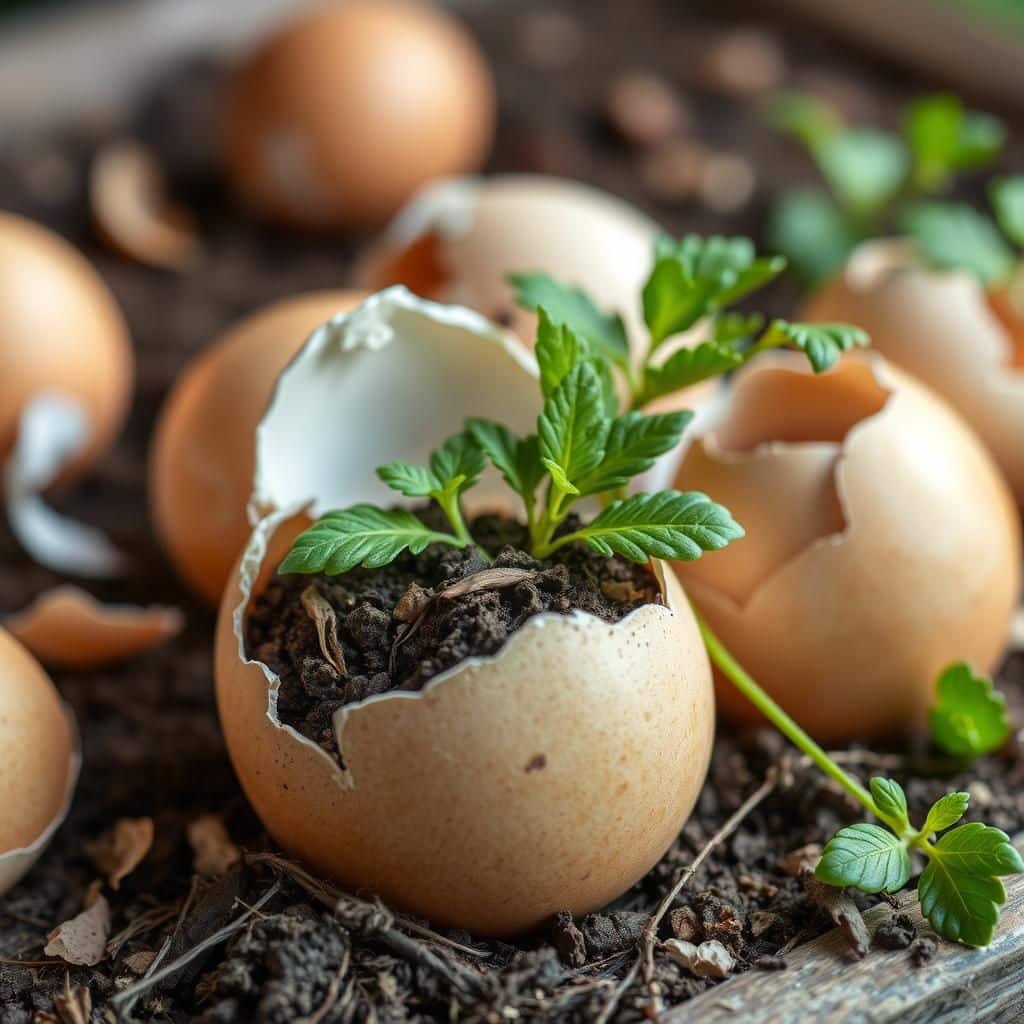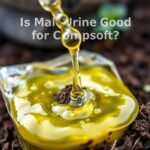Are Eggshells Good for Compost? Discover Their Benefits and Uses in Your Garden

Eggshells are often considered kitchen waste, but they hold significant potential as a valuable addition to your compost. Rich in calcium and other essential nutrients, eggshells can enhance the quality of your compost, benefiting your garden's soil and plants. In this article, we'll explore the various benefits of incorporating eggshells into your composting routine and how they can contribute to a healthier, more productive garden. Discover the simple methods to utilize this underrated resource, making the most of your kitchen scraps while promoting sustainability and improved soil health in your gardening practices.
Are Eggshells Good for Compost?
Eggshells are indeed a valuable addition to compost, as they are rich in calcium and help balance the acidity in compost piles. When added to compost, eggshells decompose slowly, providing a steady supply of essential nutrients that support the growth of beneficial microorganisms. This gradual release is particularly beneficial for plants, as calcium is crucial for cell wall structure, promoting healthy growth and helping to prevent blossom end rot in crops like tomatoes. For optimal compost benefits, it is recommended to crush the eggshells before adding them, which speeds up their decomposition and enhances nutrient availability in the compost mix.
Nutritional Benefits of Eggshells
Eggshells are primarily composed of calcium carbonate, making them an excellent source of this essential nutrient for plants. Calcium is vital for the development of strong cell walls and membranes in plants, ultimately leading to better yield and resilience against diseases. In addition to calcium, eggshells contain small amounts of other minerals such as magnesium and phosphorus, contributing to the overall nutrient profile of the compost and enriching the soil in which plants grow.
How to Prepare Eggshells for Composting
To effectively compost eggshells, it is best to first rinse them to remove any remaining egg residue, which could attract pests to your compost pile. After rinsing, allow them to dry completely. For faster decomposition, crush the eggshells into smaller pieces or grind them into a fine powder. This increases the surface area, allowing microorganisms in the compost to break down the shells more efficiently. Once prepared, sprinkle the crushed eggshells throughout the compost pile for even distribution.
Impact on Soil pH
Eggshells can play a significant role in adjusting the pH levels of your compost and the soil in which it is applied. Since they are alkaline, adding crushed eggshells to acidic compost helps to neutralize its pH, creating a more balanced environment for plants to thrive. This is particularly beneficial for plants that prefer slightly alkaline conditions. It is essential, however, to monitor the pH levels of your compost regularly and adjust the amount of eggshells added accordingly to avoid making the compost too alkaline.
See also:
Comparison with Other Compost Additives
When compared to other common compost additives, eggshells stand out due to their high calcium content. While materials like grass clippings and kitchen scraps provide nitrogen-rich nutrients, eggshells offer a vital nutrient that is often lacking in compost piles. Unlike other sources of calcium, such as lime, which can drastically alter soil pH, eggshells offer a slow-release form of calcium without the same risk of over-alkalinity. This makes them a safer option for maintaining nutritional balance in your compost.
Composting Alternatives for Eggshells
If you are unable to compost eggshells for any reason, there are several alternatives you can consider. For example, you could use them as a natural pest deterrent by scattering crushed eggshells around the base of plants to deter slugs and snails. Alternatively, eggshells can be implemented in homemade garden fertilizers by mixing them with other organic materials or used as a soil amendment directly in the garden. Each of these alternatives can contribute to improving soil health and plant growth without relying on traditional composting methods.
| Benefit | Description |
|---|---|
| Calcium Source | Provides essential calcium for strong plant growth. |
| pH Neutralization | Helps balance acidity in compost and soil. |
| Slow Release | Gradually decomposes, supplying nutrients over time. |
| Pest Deterrent | Scattering crushed shells can repel garden pests. |
| Soil Improvement | Enriches soil with minerals and nutrients. |
Understanding the Nutritional Value of Eggshells for Compost
Eggshells are an excellent source of calcium carbonate, which is essential for plant growth and can help improve soil structure in your garden. When added to compost, they break down over time, releasing valuable nutrients that promote healthy root development and enhance soil fertility. Additionally, the porous nature of eggshells allows for a better aeration of compost, aiding in the decomposition process and attracting beneficial microorganisms that contribute to a richer and more balanced compost mix.
How to Prepare Eggshells for Composting
Preparing eggshells for composting is a simple process that involves rinsing and drying them to remove any remaining egg residue. Crushing the shells into smaller pieces can speed up their breakdown, allowing for a more efficient release of nutrients into your compost. You can grind them into a fine powder or leave them in larger chunks, depending on your composting method. It's essential to avoid adding too many uncrushed shells, as they may take longer to decompose.
The Benefits of Calcium in Eggshells
Calcium is an essential nutrient for plants, playing a vital role in the development of cell walls and the overall health of plants. By incorporating eggshells into your compost, you ensure that your garden receives a steady supply of this nutrient, which can help prevent issues such as blossom end rot in tomatoes and peppers. Furthermore, calcium can improve the soil structure, promoting better drainage and preventing compaction, thus creating a healthier environment for root systems.
See also:
Impact on Soil pH Levels
Eggshells can also have a positive effect on your soil's pH levels. Since they are alkaline in nature, incorporating them into acidic soils can help to neutralize acidity, creating a more balanced environment for plants. The gradual breakdown of eggshells releases calcium carbonate, which can effectively raise the pH and promote better nutrient availability, resulting in healthier plant growth and improved overall soil health.
Attracting Beneficial Microorganisms
Adding eggshells to your compost can contribute to a diverse ecosystem of microorganisms in your garden. The porous texture of the shells provides a habitat for beneficial bacteria and fungi, which help to break down organic matter and increase the biological activity within the compost. This process not only speeds up decomposition but also leads to the creation of rich, nutrient-dense compost, which enhances the biodiversity in your soil.
Practical Tips for Using Eggshells in Your Garden
Incorporating eggshells into your gardening routine can be done in several ways beyond composting. You can sprinkle crushed eggshells directly into planting holes or around the base of plants to deter pests like slugs and snails, as the sharp edges can help protect delicate plant shoots. Additionally, they can be used as a natural mulch or mixed with soil in your garden beds, providing both nutrients and structure over time.
Questions from Our Readers
Are eggshells good for compost?
Yes, eggshells are indeed good for composting. They are a great source of calcium, which helps to improve soil structure and supports plant health. When added to compost, they break down and enrich the mixture, providing essential nutrients to plants.
How should I prepare eggshells for composting?
To prepare eggshells for composting, you should rinse them to remove any egg residue and then crush them into smaller pieces. This increases the surface area and allows for faster decomposition, making it easier for nutrients to be absorbed in the compost.
See also:
Can I add too many eggshells to my compost?
While eggshells are beneficial, adding too many can create an imbalance in your compost bin, especially if it becomes too high in calcium. It's important to maintain a good mix of materials to ensure optimal decomposition and nutrient availability.
Will eggshells attract pests in my compost?
Generally, eggshells do not attract pests when added to compost. However, if not rinsed properly, they might attract some unwanted visitors. Make sure to clean them well and balance your compost with other materials to deter any possible pest issues.

If you want to read more articles like Are Eggshells Good for Compost? Discover Their Benefits and Uses in Your Garden, we recommend you check out our Compost category.
Leave a Reply
Related Articles